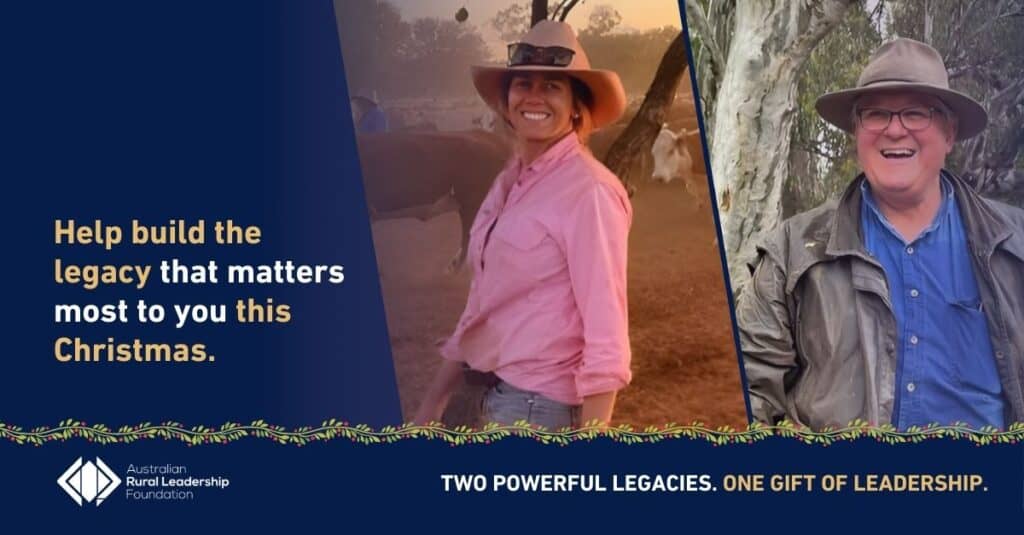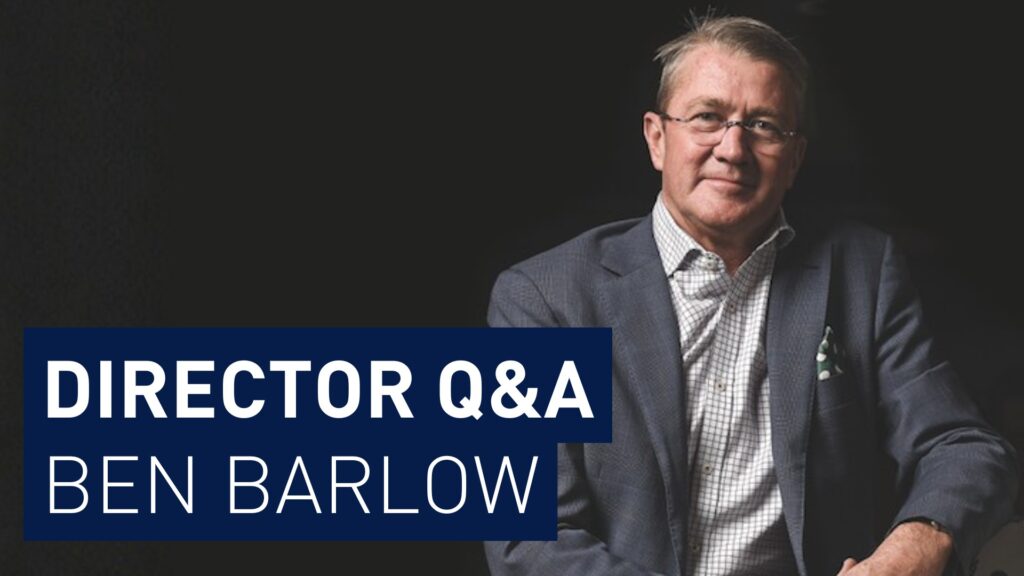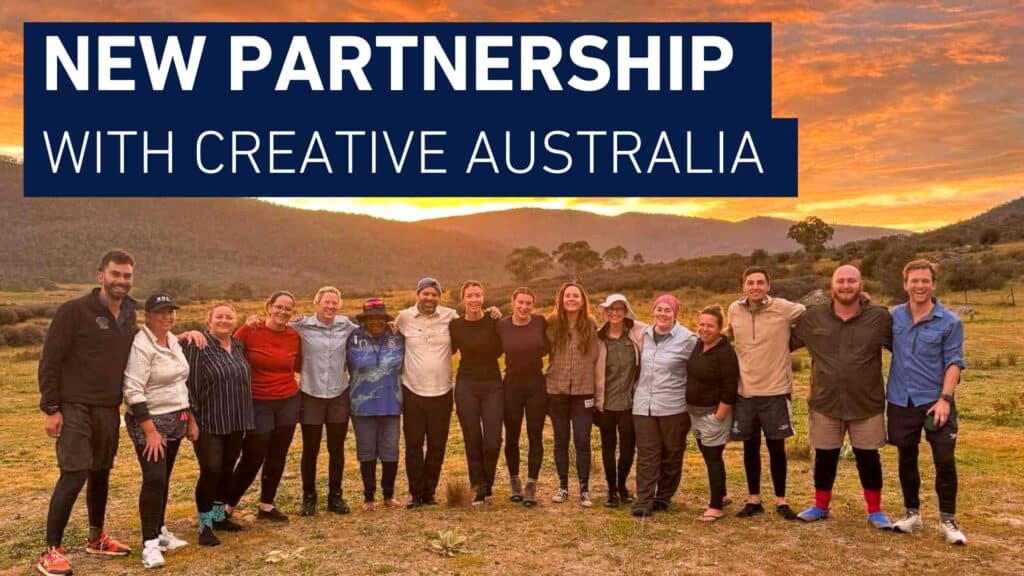You’re likely to recall the bleak headlines concerning Alice Springs, dominating news platforms earlier this year.
All the while detracting from the abundant positive qualities of the Red Centre city, and from the facts.
It was front of mind of a cohort of leaders participating in the Leading Australian Resilient Communities (LARC) program held in the southern Northern Territory.
They wanted the community to take back control of the narrative, of the real story of the region. Alice-Springs based trainer and coach Barb Clifford says a Community Newsletter was a start.
“We know the community is in pain and hurting and there’s a lot of narrative around a newspaper not being here and us no longer being in control of our story. So, this is about us empowering the community to be in control of their own story rather than it coming back to them from someone else. The biggest asset all of us have is our relationship and connection to the community.”
Barb explains their leadership learnings from LARC guided their decision.
“It helped us to get clear about what our values are and it’s been really important for us to have aligned values and it really put fuel on our passion to feel empowered to make a difference and to take action. So, the program has enabled us to have clarity and to talk but also to have an action that we can put into place.”
Youth support and tackling domestic and family violence are also among the priorities of these passionate leaders.
Darwin-based disability support provider Geoffrey Selems explains a vision of a community approach to addressing domestic and family violence, where those involved can talk openly about challenges and in addressing them. It’s hoped open conversations on domestic and family violence will lead to change in behaviour.
“If they see other men that have been through the same situations or worse and they’ve come around and can talk about it, (hopefully) others will think I’m open to change. This is where we go with it. So, it would definitely be a good thing…as to how far as it goes, I have no idea, hopefully huge,” he says.
With these issues resonating with Geoffrey, he shares the LARC experience has had a personal impact.
“Bringing out the leadership skills helped me come out of my comfort zone but also not being shy to open up around other people… it’s given me that power where I can just be open. It is actually working really well for me professionally and mentally, mentally probably more because I guess that leadership guidance has been a great thing for me and it just helps me look at everything from a different point of view.”
Support for local youth is what’s driving some of the cohort to ensure young people can access the services they need. Alice Springs-based Toni Facer, from the Central Land Council, explains.
“We were curious and we wanted to ask those questions – what are those support services, what are they meant to be doing and also talk to youth about ‘What do you know about these programs?’ And as parents, what do parents know about these programs in place?
“I think through the program we’ve worked really closely together and built really strong relationships and became really close friends. So, I think the next step is to really define what that looks like and start the discussions around how many homelands are providing the services, what are the current systems or programs already in school, and what are those funding opportunities that we can access? So really starting to kind of map all that out.”
The group’s experience on the second intensive, in being on Country, hearing story and connecting with Traditional Owners, also inspired them to explore how local youth can better access and benefit from cultural immersion.
“I think we all bring our own insight and our own knowledge to certain things, so working collaboratively. I think it’s kind of looking at it all from different angles to make sure that we do identify the gaps.”
The Southern NT cohort presented these community projects at their recent graduation. The region is one of ten targeted by the LARC program for the challenges endured – weather related disasters and the covid pandemic among them along with social challenges unique to each.
In the Wide Bay Burnett, these include youth unemployment, a shortage of housing and skilled workers, the need for improved access to health services, and better community advocacy and engagement.
Community projects presented by the WBB cohort at their graduation focused on:
- better engaging and representing local youth and their needs in the Australian Liveability Census
- develop strategies and resources to drive meaningful conversation, and action, to address multi-generational unemployment
- improve community health literacy, access, and ultimately timely and appropriate health interventions (focused initially on the South Burnett region)
- create a toolkit of resources to drive better consultation and engagement to meet community needs
- provide community resources of relevant government and community information to help residents effectively advocate and share priorities, and seek funding, to the right people in the right places
Michelle Hay of Hervey Bay and head of campus (Fraser Coast) at Sunshine Coast University says the LARC experience highlighted the benefit of working with others of different expertise: “Working as a group of leaders is really important to the success of our (unemployment) program because we all come from different backgrounds, we all have access to different resources and learning environments and we bring different perspectives and we bring different strengths and weaknesses and personalities. It gives us a great opportunity to see the same problem from different perspectives with different ideas and different solutions.”
Maroochydore-based AusIndustry regional manager Kay Strong adds: “For me, it’s been meeting a lot of people around my community who are also passionate about our communities and working together and learning some new skills and techniques in effectively working together for our region.”
ARLF chief executive Matt Linnegar says it’s the very objective of the LARC program, to bring together current and emerging regional leaders to further develop their leadership skills and build a network that’s committed to action and outcomes.
“This is effectively done through a collaborative network of individuals committed and invested in where they live. By combining their skills, knowledge, expertise and even contacts, this is a powerful way to make a real difference.”
LARC is delivered as part of the Australian Government’s Building Resilient Regional Leaders Initiative (Pilot) grant and was delivered by the Australian Rural Leadership Foundation (ARLF) in partnership with the Regional Australia Institute (RAI) and state leadership partners – Leadership Victoria, Leadership WA, Tasmanian Leaders and the Leaders Institute of SA.
The program included future forums, place-based leadership development sessions, coaching and webinars. The experience, learnings and impact of these leaders will be presented at a national LARC event in Canberra in early August.





